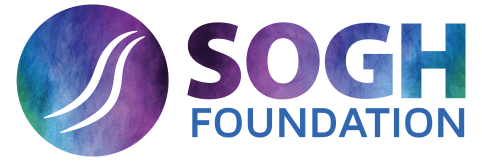Covid-19 can be severe, but we can help.
Kristy Nickel is a nurse clinician in the Children’s Hospital for Pain Service at Health Sciences Centre. Depending on the day, her work requires her to be in every ward of the hospital. Kristy has always preferred taking the stairs through the hospital as an extra way to add some exercise into her routine. She was also extremely active, taking part in a workout group that included multiple intensive classes per week.
Then she and her family got COVID-19. Her children recovered quickly, but Kristy and her husband were sick for weeks. Then Kristy started feeling the symptoms of long-haul COVID. Seven months after contracting the disease, simple things like taking a quick shower will sometimes require her to lie down from exhaustion. She has trouble breathing and her heart races out of control. She tried to return to work but had to go on long-term disability. She needed individualized care and was referred to our program to help.
While most people who contract COVID-19 recover within a few weeks, some will experience long-lasting difficulties due to post-COVID syndrome or time in hospital. As many as 50% of those hospitalized due to COVID-19 face deconditioning and extended recoveries.
How did you hear about the Wellness Institute program?
“I found the long-hauler program through my long-term disability manager. I had been trying to do a gradual return to work, but I couldn’t get past a four-hour shift without having to have multiple recovery days afterwards. Now I am nowhere close to being able to return to work full-time.”
How has the program helped you?
“In the two months since I joined the program, I have found it helps me to manage symptoms better, as well as to understand the triggering activities that would lead to a long recovery time. Overall, it helps me listen to my body more effectively. When the program first started, we tried adding some cardio and strength training, but I ended up needing two weeks to deal with flare-ups of symptoms.”
How has being a COVID Long-hauler affected your life?
“When my husband and I first contracted COVID we were both pretty sick at home for nearly a month. In hindsight, I probably should have gone to the hospital. During that time, I tried to do a form of calming yoga, really anything to keep active, but my heart rate would go up to 190. Now I can’t even go on a 10 minute walk with my kids without my heart rate going up and feeling fatigued. I’ve had a diagnosis of Postural orthostatic tachycardia syndrome (POTS), along with post-viral fatigue syndrome – which we have been focusing on in this program. The interesting thing about these symptoms is that I can do the activities and the symptoms don’t kick in right away, but afterwards the recovery is brutal – headache, heavy head, and overwhelming fatigue that is hard to explain. I also have to monitor screen time and heavy-thinking activities as they lead to significant fatigue.
It’s hard to explain the symptoms to others, as they can seem quite vague. I had x-rays that came back fine and my doctor really didn’t know how significant long-haul symptoms were at the time as I look completely normal from the outside. It wasn’t until the first breathing test I took that showed I was only using 50% of my lung capacity,” she said.
The Wellness Institute is now offering services for recovered COVID-19 patients who have ongoing symptoms related to their illness such as fatigue, muscle loss, neurological symptoms, shortness of breath and general deconditioning.
The Wellness Institute developed the Post COVID-19 Rehabilitation and Recovery Program based on the latest research and treatments and continues to review findings as knowledge around COVID-19 grows. This would not be possible without your generous donation. Our team brings together expertise from our chronic disease management, rehabilitation, and return-to-work programs to provide comprehensive support.
Operating our Wellness Institute within a hospital, and coupled with our renowned research centre, the Chronic Disease Innovation Centre, we are able to tailor a recovery and rehabilitation program for each person’s unique needs and goals. The customized care plan may include a combination of approaches and therapies to ensure each person gets the treatment they need to recover as quickly and safely as possible.
For more on this program, click here.
To donate to this program and help provide access to support for those in need, please call 204-632-3552 or click the Donate button.

